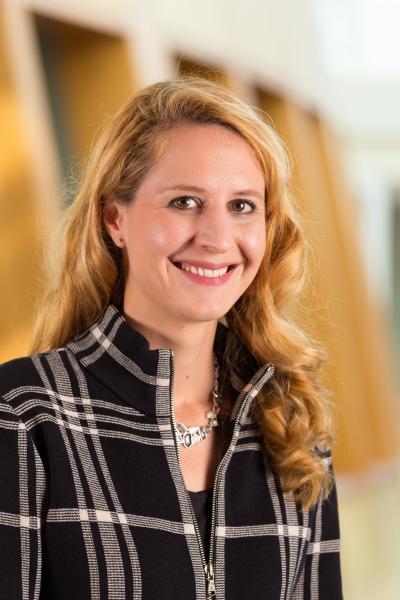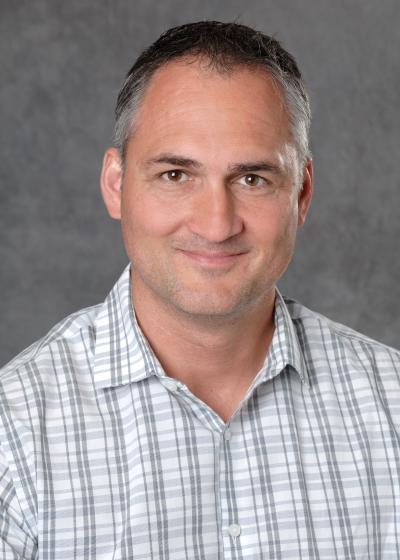
Georgetown University’s Dana Hoover
Openness…listening…collaboration: They are also by-products of the MBA structure, which emphasizes teamwork like no other. From this, the Best & Brightest gleaned two key lessons. First, says Cornell University’s Ronnie I. Mimran, the team will inevitably outperform the individual. Once mobilized, he argues, their “sum total” of experiences and knowledge is “infinitely more powerful.” That’s particularly true, adds the London Business School’s Blair Wood, if the team members accept the vision, responsibilities and plan.
LEARNING TO BUILD THE ‘RIGHT’ TEAM CULTURE
“It doesn’t matter how good you think you are or how well you know your subject matter,” claims the former television producer. “If you don’t have the support of those around you – both above and below – you will always be limited one way or another.”
The second lesson, according to McKinsey consultant Dana Hoover, almost feels counterintuitive – but it indispensable for Type-A, “make it happen” leaders. Bottom line: EMBAs must adapt to the rhythms, as much as the roles, of the team.
“You can only work as fast as the majority of the people on your team,” says the Georgetown McDonough EMBA. “Every team has pro-active members, procrastinators, talkers, thinkers and sometimes all in the same person! Despite your plans or expectations, you have to slow down when the team slows and speed up when they speed up.”
Perhaps the biggest part of any team, adds the University of Toronto’s Rupinder Dhillon, is creating a culture – one that, in her words, “values trust, mutual accomplishment and respect.” The lessons she absorbed from interacting with her study team, she says, has re-shaped her leadership philosophy.
“At the end of each term or major deliverable, we made a habit of providing each other with actionable feedback,” she recalls. “I believe that it was through this process that we were able to develop a camaraderie and a trust, which was then reflected in our work. I have subsequently placed a large importance on feedback within my team at work. We have made giving and receiving feedback from different levels of the working groups a standard practice in how the team supports each other’s development.”
REINFORCING STRATEGY THROUGH DATA
One major benefit of EMBA curriculum is that students can immediately apply classroom lessons to their employers. For many students, such as the University of Chicago’s Brendan Downing, negotiation offered the quickest return on investment – with students better equipped to pinpoint sticking points and flush out alternatives.
“It was being able to apply a framework around understanding the different parties’ motivations during the sale of my business,” Downing reveals. “By fully understanding everyone’s positions, I could more systematically enter into formal or informal dialogues with my counter-parties and disclose information that would help maximize our exit value.”

Michigan State’s Spiros Assimacopoulos
Erik Day, who spearheads Dell Technologies’ North American small business efforts, also picked up some pointers during his negotiation course at Southern Methodist University’s Cox School of Business. His big takeaway involved integrating data and strategy – particularly the right data – to better inform his decision-making.
“During my MBA,” he says, “I have built a data-driven, statistically-relevant Global Business Case (based on what I have learned) that encouraged the senior executive team to invest millions into my business, which will help fuel two times the growth over the next four years.”
TURNING A COMPANY INTO A “PETRI DISH”
In addition, the EMBA experience also gave students a greater appreciation for business elements that they sometimes took for granted. One of those students was Spiros Assimacopoulos, the CEO of a bakery. His classes at Michigan State’s Broad College of Business sparked his curiosity – and reminded him how each part of the business feeds into the other. “My company was like a petri dish for whichever subject was being studied,” he jokes.
Similarly, USC Marshall’s Princess Mushohwe-Mpati, a sales manager at CVS Health, found herself weighing alternatives that she’d normally discount. “There are multiple ways of analyzing the same situation and I think it has really opened my eyes to all the different perspectives out there and how that can generate unique and different ways of solving problems. I apply it at work by listening more and seeking others opinions more encouraging them to think different and explore all possible solutions to any problem we are attacking.”
This greater sense of curiosity and appreciation even turned Ohio State’s Geoffrey Rinehart into the rebel of his family’s construction business. By that, he means that he isn’t afraid to challenge the what, how, and why of their processes and purposes. “This involves asking the hard questions that aren’t always popular, but necessary. My MBA experience has given me the ability to see situations differently and the self-confidence to make educated decisions.”
WHEN TO KNOW TO FIRE SOMEONE
At the same time, business school taught Aaron Anderson the opposite lesson: patience. A successful floor trader who prides himself on taking action immediately, the U.C.-Irvine EMBA program forced him to zoom out and look at the bigger picture away from his role. “It taught me patience in working with others that have differing personality types and coming from diverse backgrounds. This, I think, has been a growth opportunity for me and has helped me be more focused on finding a better balance.”
Even more, EMBA programs provided the Best & Brightest with the confidence and tools to make the hardest of decisions. That was the case for Ohio State’s Dustin P. Keith, who had to learn when to fire a talented but disruptive employee who was undermining his company’s culture. During one case discussion, Keith had an “ah-ha” moment and fired the disruptor within a week. Sure enough, this “addition by subtraction” improved morale without hobbling performance at his firm. It was also a lesson that was taken to heart 400 miles away in Charlottesville, Virginia by Corbin Norman, an entrepreneur and marketing strategist.
“It is best to have difficult conversations early and often rather than late or never,” states the University of Virginia MBA. “This was a constant theme during my MBA. I used it in several situations relating to important, high stakes decisions for my startup and my career as an entrepreneur. All didn’t end in my favor, but I started the conversation and that is true learning.”
DON’T TAKE YOURSELF TOO SERIOUSLY
If anything, the Class of 2018 learned something that surprised many in their journey. They didn’t need to be perfect; they could make mistakes; and life wouldn’t end if they fell short. In other words, says Cornell University’s Manisha Mehrotra, they shouldn’t take themselves too seriously.
“Some assignments and classes I did great in and others not so much; the lesson was to move on to the next thing,” she admits. “It’s helped me at work because when things don’t go to plan, I move on to the next thing or go back and try it differently. I am more open to looking “bad” (more so to myself) than I was before my MBA process. My MBA experience provided a safe space to try things out, flex myself in ways that I hadn’t done, and when I found (or rediscovered) ways of doing things, I implemented the lessons at work. Overall, the lesson has been to get out of my comfort zone.”
DON’T MISS:
Best & Brightest Executive MBAs: Class of 2018
The Biggest Myths About Executive MBA Programs





Questions about this article? Email us or leave a comment below.